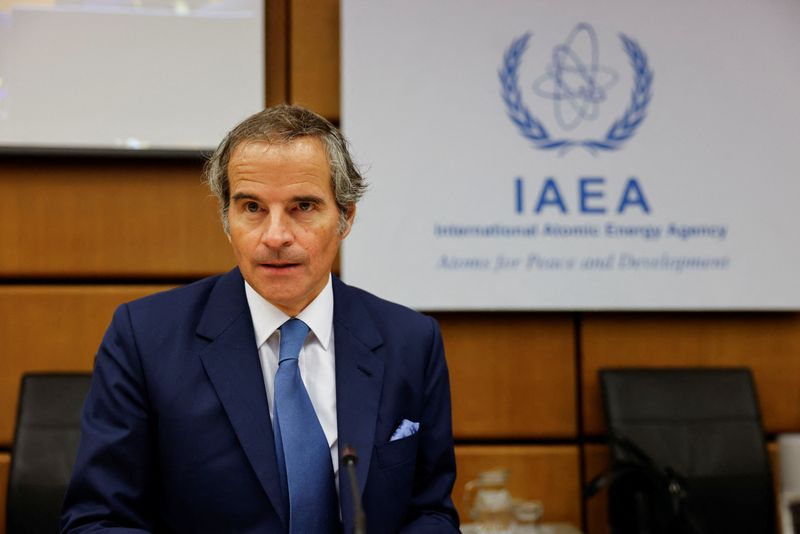
©Reuters. Director General of the International Atomic Energy Agency (IAEA) Rafael Grossi attends the meeting of the IAEA Board of Governors, where issues concerning Iran and Ukraine are on the agenda, in Vienna, Austria, March 4, 2024. REUTERS/Lisa Leutner
2/3
By Francois Murphy and John Irish
VIENNA (Reuters) – The quarterly meeting of the United Nations’ top nuclear decision-making body began on Monday, with Western powers once again choosing not to seriously confront Iran over its failure to cooperate with the agency on a series of of issues, diplomats said.
It has been more than a year since the 35-country Board of Governors of the International Atomic Energy Agency passed a resolution ordering Iran to cooperate with a years-long IAEA investigation into uranium particles found in undisclosed sites, saying it was “essential and urgent” for Iran. to explain the tracks.
Since then the number of undeclared sites under investigation has been reduced to two from three, but the list of problems between the IAEA and Iran has only grown longer. Iran has failed to fully honor an agreement to reinstall IAEA cameras at some sites and in September barred some of the agency’s most highly regarded inspectors.
“I deeply regret that Iran has not yet reversed its decision to withdraw the designations of several expert inspectors of the Agency,” Director General Rafael Grossi said at the Council meeting.
“Only through constructive and meaningful engagement can all these concerns be addressed and I once again call on Iran to cooperate fully and unambiguously with the Agency.”
With the Israeli military offensive in Gaza continuing in response to the October 7 Hamas attacks, raising tensions across the Middle East, the United States does not want to risk further diplomatic escalation with Iran by pushing for a resolution against the ‘Iran at the IAEA, diplomats said.
“If an (IAEA Council) resolution were adopted right now… it would be too dangerous to do anything that could be interpreted as a wrong signal that could trigger a miscalculation,” a Western diplomat said, citing various factors .
“The region is in this critical situation, there is no ceasefire or resolution of any kind in Gaza, we don’t have the prospect of any kind of nuclear solution, and… the United States is going to a presidential election, ” they said.
Diplomats had said before the Council meeting that the three European powers that proposed the latest resolution alongside the United States and generally act in coordination with Washington – Britain, France and Germany, known as the “E3” – were pushing for a resolution and had drafted a text.
Washington, however, has been resistant for months to finding a solution against Iran, at least in part because of the upcoming US presidential election in November, diplomats said, and has once again been the most reluctant of the four powers.
The United States and the E3 have openly criticized Iran on these and other issues, such as its growing stockpile of enriched uranium that would be enough, if enriched further, to fuel several nuclear bombs. Iran says it has no such intention.